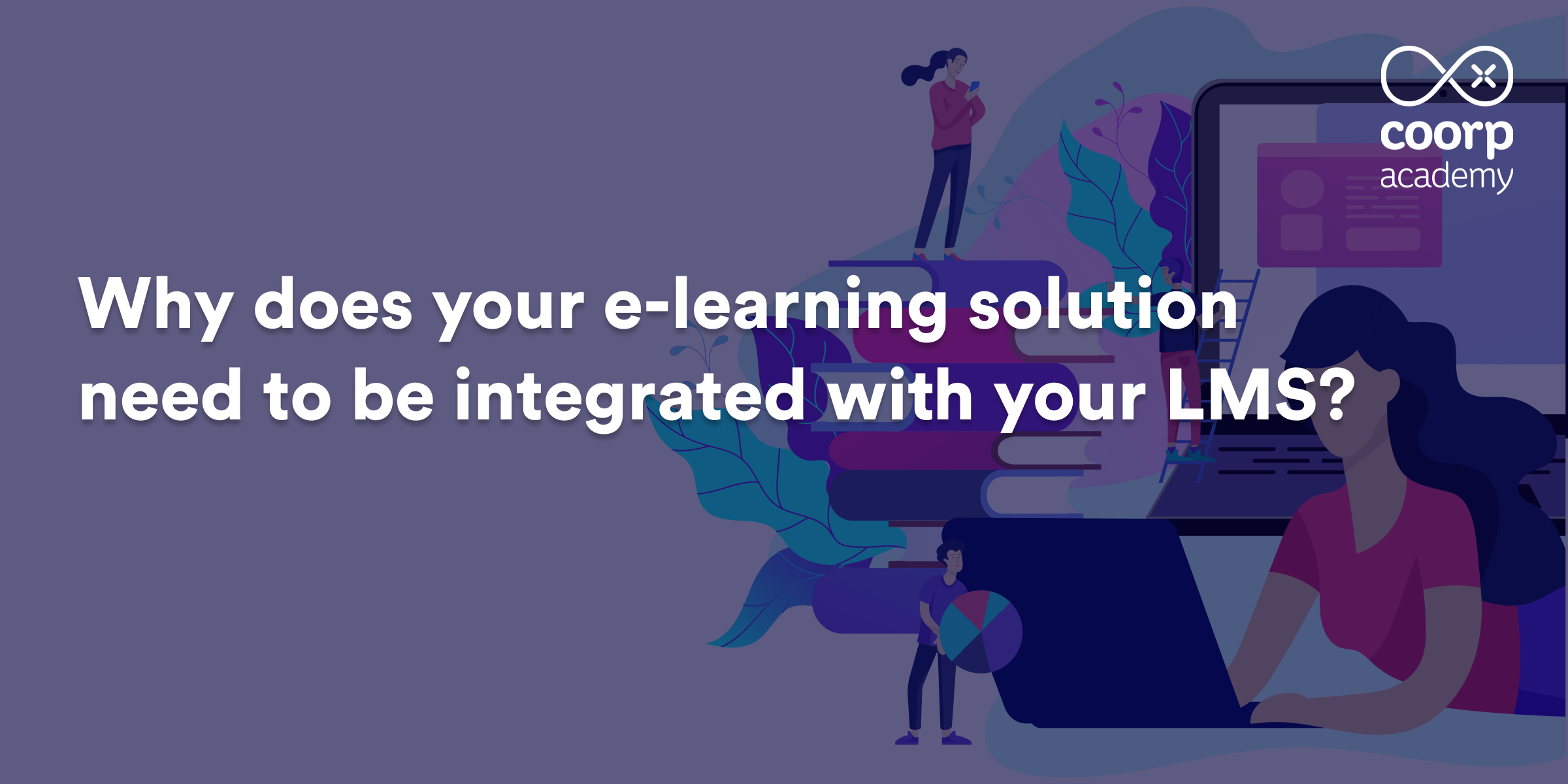Why does your e-learning solution need to be integrated with your LMS?
Learning Innovation

In information and communication technologies, a learning management system (LMS) or learning support system (LSS) is a software that allows the management and centralisation of training courses for all employees.
These learning management systems allow companies to manage, deliver and evaluate their online training programme. Thus, with an LMS, it is possible to design, develop and make available to employees, courses directly accessible on the software. The courses can be remote, i.e. they are not necessarily online but can be accessed desynchronously, and learners can obtain the courses at any time they wish, by e-mail, post or other medium. Training can also take the form of e-learning, which means carrying out training, a course or learning through a digital platform, via a computer connected to the Internet.
LMSs have the advantage of being central tools in the company and are therefore often used by the whole group. They are complete, but not specialised in digital learning… unlike us.
Once an organisation invests in training and provides its employees with independent training systems around an LMS, learners have access to a variety of content, through different media. However, integrating this course content into a single platform would improve the learning experience for employees and facilitate access to training.
So what is integration with an LMS and why is it useful for engaging learners in training?
To make learning ever more fluid, accessible and continuous, it is possible to integrate e-learning platforms – also known as LXP (Learning Experience Platforms) – with a learning management system, such as LMSs. Thus, integration with an LMS consists of merging the learning management system with the e-learning applications already used in the company.
Today, the training sector is faced with new needs. Digitalization and new work organizations are shaping new uses. In order to respond to this, training must be integrated into the organisation’s existing systems.
Learning at the click of a button
In our connected environments, we have become accustomed to having our uses made easier, and user experiences increasingly tailored to user behaviour. The primary benefit of integrating a learning solution into your learning management system is ease of access. With single sign on (SSO), learners can log in and access their training programme without having to use separate credentials (usernames and passwords). Similar to using your Facebook or Google account to log into a site, single sign-on allows users to access the content of the platform or site in question with one click. For training, enabling learners to access training content more easily and quickly is a crucial issue for engaging them in their learning. Integrating your digital learning applications with an LMS allows you to have a single entry point, which is easier to understand for everyone.
An improved experience for all users!
Integration with LMSs is not only beneficial for the user experience of learners. It also greatly improves the use and follow-up of training solutions for learning managers in HR and Learning & Development (L&D) departments. By integrating an e-learning platform directly into your organisation’s LMS, learner profiles are created automatically, simplifying deployment across multiple subsidiaries or BUs. Learner activity data, such as course completions, is also automatically fed back into the LMS, which facilitates reporting (see Better performance and monitoring indicators). Integration with an LMS promises considerable time savings for training teams.
Integrate to engage
By making it easier to access your e-learning solution through its integration into your learning management system, you can increase traffic and the number of connections. In addition to improving your key performance indicators, these increases indicate that the training is being followed and appreciated by your teams! Continuous learning means learning on a daily basis and therefore learning in the flow of work. The increase in skills can only be effective if training is accessible everywhere, all the time, through integration.
Better performance and monitoring indicators
With the integration, the monitoring of the platform’s performance is greatly improved. Reports and evaluations are automatically generated and accessible directly on your LMS. This means you can quickly and easily find all the metrics you need to track the progress and engagement of your learners in their learning. This data is essential to improve your training solution and better meet your needs. The integration allows you to find all the training data you need in one click, all on the same platform.
An interface and pedagogy designed to make people want to learn
Improving the user experience is not only a question of accessibility. It is also a question of interface and therefore of design. In order to invest learners in their training, it is necessary to integrate an e-learning platform that meets their needs and expectations. This applies both to the design of the platform and to the way in which the course is delivered. Integration with an LMS means above all being able to offer learners a web user experience worthy of the name, to make training more enjoyable and to reinforce the uses of e-learning platforms.
In terms of interface, our Coorpacademy training platform is inspired by the codes of video games: quizzes, battles between learners, life quotas to validate – or not – a course module, etc. Learners benefit from a real learning experience that is fun, digital and that makes them active in their training. Because we are convinced that training must adapt to new uses, we also offer premium content, developed through a reversed pedagogy: we ask the learner questions before presenting the lesson. And the lesson – in the form of a video for the most part – does not exceed 5 minutes, so that learners remain active during the course. We also invent innovative formats such as the digital Escape Game or more recently, the Cybercafé podcast, which once again respond to the uses of the modern world.
What are you waiting for to integrate Coorpacademy into your LMS?
Training is becoming digital, not only because of previous confinements, but also because the digital transformation of companies implies maximising the use of digital tools. Today, the challenge is to make the processes around training even easier. Accessibility, user experience, performance monitoring, e-learning platforms are a formidable lever for optimising your LMS and your global training offer. By integrating Coorpacademy into your LMS, give your learners access to courses co-published with renowned publishers, and make training an entertaining, instructive and collaborative moment!


